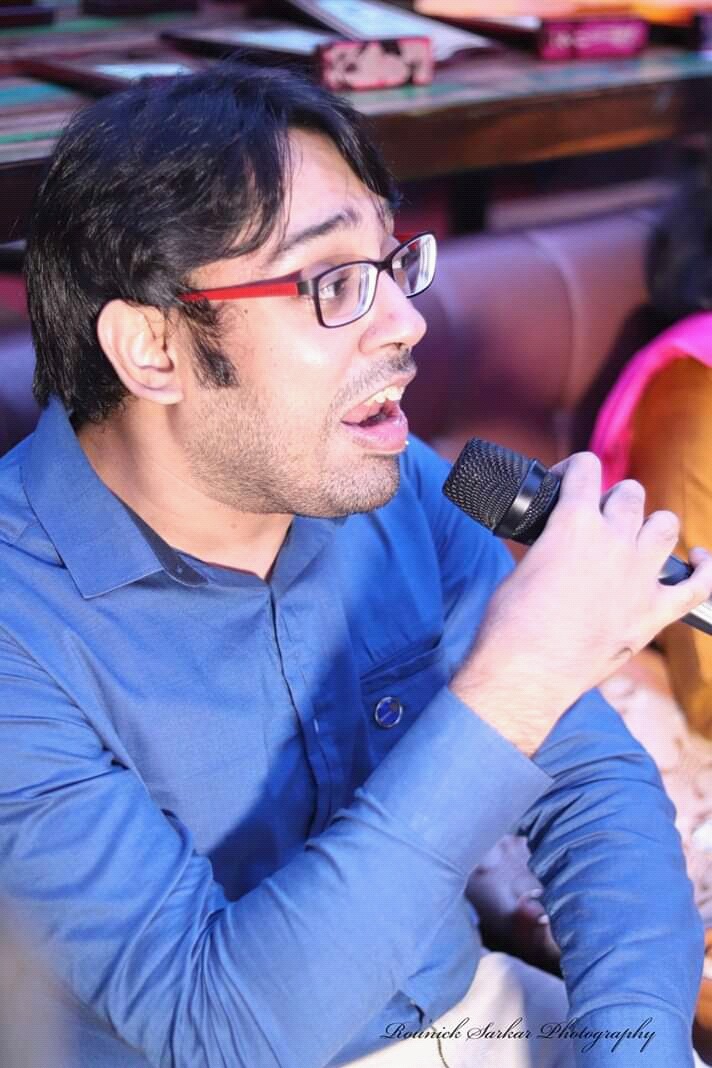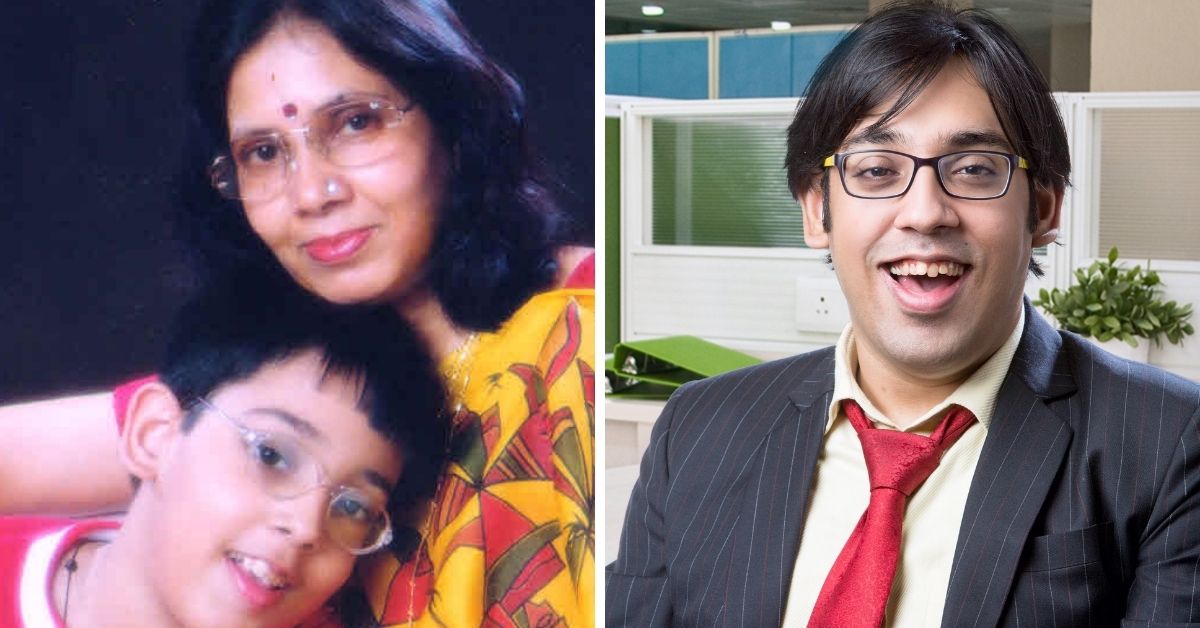Kolkata-based Sumit Agarwal began questioning his reality while sitting in the classroom among his peers. He’d often wonder why people avoided him, and why he couldn’t engage in sports such as basketball like others did.
Sumit’s parents had already made him aware that he was born with Cerebral Palsy (CP), a neurological condition that results in poor motor skills, stiff or weak muscles, and tremors, which can make simple movements painful and small tasks time-consuming.
And yet, here he was, battling with himself and desperate to find answers.
As Sumit grew up, he began understanding his disability better, and eventually stopped worrying about it altogether. According to him, he lacked nothing and had all the skills to pursue his dreams. He thought people were incorrect when they said he was “handicapped”.
As a fully grown adult in his twenties, he learnt to differentiate between ignorant and arrogant people. So if the 29-year-old does not find disability parking in a mall, he doesn’t shout at the guard, for he knows it’s the system that needs to be changed. But he does not shy away from reprimanding people who look down on his disability.

“I have had four surgeries and 70% of my movement is restricted. So reduced mobility, muscle spasms and slower speech are some of the inevitable obstacles I have to overcome routinely. But this does not bother me. What really affects me is people’s behaviour and the ineffective execution of progressive disabled-friendly laws. The biggest example was the six job rejections I received. I had to start my own company to bring about a grassroots change and become an activist,” Sumit says.
Today, Sumit runs his own public relations (PR) firm and has handled 300 projects including press releases and publicity events.
He is also an advisor member of organisations catering to disability rights such as Rotary International, Newspapers Association of India (NAI), Public Relations Society of India (PRSI) and International Human Rights Organisation (IHRO).
In a conversation with The Better India, Sumit talks about how his parents helped him realise his self-worth. He says this is possibly the reason he was able to make friends in college and take part in activities, despite undergoing the trauma of being mocked in school. It is also why he entered the PR profession.
‘Right parenting shaped my life’
Sumit’s parents belong to a generation where any form of disability meant not being able to do certain things, or worse, being labelled as “defective”. People with disabilities were neither encouraged to join regular schools, nor were there any laws protecting their rights.
However, his parents were grateful for his diagnosis, as they could now care for their son in the right manner. They rejected the notion that anything was wrong with Sumit. His mother even quit her job at a law firm to make sure he was cared for.
“When I was born, there were no strong laws for the disabled, so you can imagine my mother’s willpower to fight for my education. She went to innumerable schools and spent hours convincing authorities that I was intellectually at par with every other child. One school accepted me. If people stared or asked questions, she would patiently explain the condition to them. My father supported me as well, and introduced me to the only friends I had in school — books. I owe my knowledge and confidence to my parents. A sincere parenting effort can shape beautiful lives,” says Sumit. His mother was the proudest when Sumit bagged his first PR project, he adds.
Creating opportunities
Sumit graduated with a bachelor’s degree in business administration from Techno India Saltlake. He did his post graduation from ICFAI Business School and a post-graduate diploma in mass communication from Jadavpur University. He also holds an MBA Degree in Marketing from IBS Dehradun.
Despite the degrees and accolades he received, Sumit struggled to find a job. Employers focussed more on his condition and some didn’t even give him a chance for an interview or test. Not one to be dejected, Sumit decided to start his own company instead.
“We have a long way to go before the corporate world truly understands the meaning of inclusivity. I was not going to let their ignorance break my spirit. I had built contacts and networks throughout my college and university. Extracurricular activities also helped me connect with important people including members of the Rotary Club. This was my watershed moment and I used my problem-solving attitude to impress clients. In 2017, I officially launched PR Signal,” says Sumit.
However, he was not yet free from discrimination and did face problems in the initial days. He was denied projects as potential clients didn’t believe he could handle the job. But he believed in moving on. Bit by bit, he built his clientele and events which includes Digi-Ability 2018, TiECON 2018, Siege Now Art & Wine Carnival, Elite Conclave Launch Party, Inclov Social Spaces and many more. He has worked for NGOs including Kalyani Life Institute, Shishur Sevay and Artemis Fountain Foundation. He has also handled the personal publicity of clients such as Sandeep Marwah, founder of Noida Film City.
“I struggled building relations with people while growing up, but I also tried to understand the reasons behind their behaviour patterns. This led me to interact with more strangers over time until I realised I could build my professional career around it. I love building narratives and creating an image for my clients,” he says.
Through his company, Sumit is attempting to break stigmas around disability and promote inclusivity.
When asked how society can be welcoming towards the disabled, Sumit says, “We need to go beyond tokenism and just spreading awareness. We require a checks and balances system to monitor if corporations and educational institutions are following the laws. Build infrastructure to help the disabled get around. There is a lot of untapped talent. We are more resilient and patient than you believe, as we have been figuring out life since we were kids,” says Sumit.
Edited by Divya Sethu
If you found our stories insightful, informative, or even just enjoyable, we invite you to consider making a voluntary payment to support the work we do at The Better India. Your contribution helps us continue producing quality content that educates, inspires, and drives positive change.
Choose one of the payment options below for your contribution-
By paying for the stories you value, you directly contribute to sustaining our efforts focused on making a difference in the world. Together, let's ensure that impactful stories continue to be told and shared, enriching lives and communities alike.
Thank you for your support. Here are some frequently asked questions you might find helpful to know why you are contributing?

